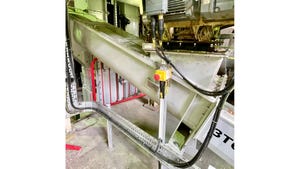March 9, 2010
For the second time in less than four months, the Society of Chemical Manufacturers and Affiliates (SOCMA) testified before Congress Tuesday on reforming U.S. chemical safety laws, arguing again in favor of a risk-based approach to chemicals management.
In remarks to a hearing before the Senate Subcommittee on Superfund, Toxics and Environmental Health, Beth D. Bosley, managing director for Boron Specialties in Pittsburgh, said the Toxic Substances Control Act (TSCA) should be modernized in ways that do not seize up the engine of innovation. She argued in favor of well-informed regulation that maximizes the improvement in our quality of life and minimizes damage to U.S. industry’s competitiveness.
“SOCMA members agree that TSCA can be modernized and that our chemicals policy goals can be accomplished in a way that doesn’t devastate a strategic American industry that is already fighting recession and foreign competition,” Bosley said. She pointed out that the U.S. still leads the world in chemical industry innovation, explaining that of the roughly 60,000 patents attributable to chemical sciences over the past five years, 35,000 have been authored by U.S. entities.
Bosley told lawmakers that two principles are essential to a sustainable chemical management law that won’t eliminate jobs, economic growth, or products. First, she argued that TSCA priorities should be based on risk; that is evaluation of hazard and exposure. For example, if a chemical is highly toxic, but used only in strictly controlled environments or in small quantities, the risk to public health is fairly minimal. The second principle involves leveraging regulatory mechanisms that work such as the Canadian approach, which has systematically prioritized that nation’s inventory.
“At present, Canada is much farther ahead of the European Union with respect to evaluation of chemicals that may present a risk to human health and the environment,” Bosley said.
Bosley said another mechanism supported by SOCMA was the “inventory reset” which was part of the Environmental Protection Agency’s (EPA) Chemical Assessment and Management Program. Of the more than 80,000 chemicals now listed on the inventory, EPA estimates that about 20,000 of these are currently in commerce. “We need to prioritize and categorize the universe of chemicals,” Bosley told lawmakers.
Bosley added that SOCMA members take great care to ensure their products are appropriately manufactured, tested, packaged, shipped, and used responsibly. She added that SOCMA’s ChemStewards program has helped industry decrease trends in release, process upsets, and transportation incidents.
Bosley also testified before the House Subcommittee on Commerce, Trade and Consumer Protection on this issue last November.
SOCMA is the leading trade association serving the batch, custom, and specialty chemical industry since 1921. SOCMA’s nearly 300 members employ more than 100,000 workers across the country and produce 50,000 products valued at $60 billion annually. For more information, visit www.socma.com.
You May Also Like


